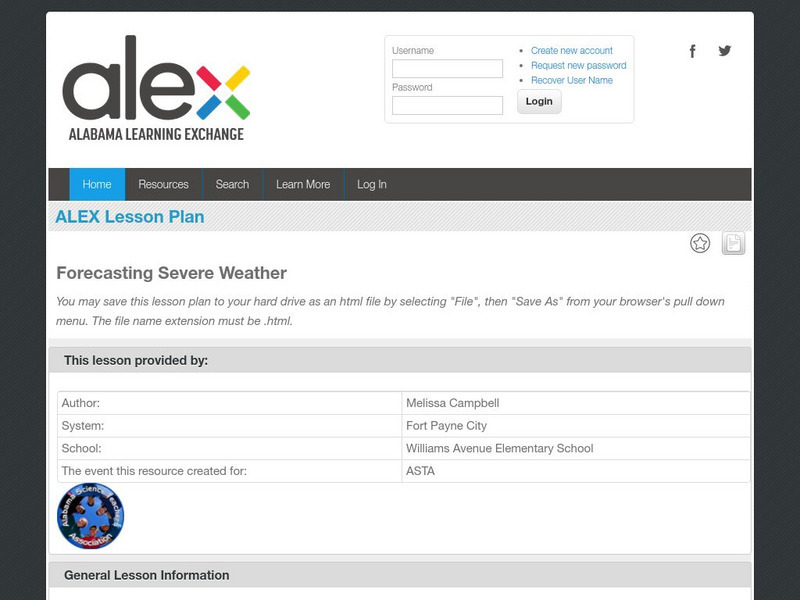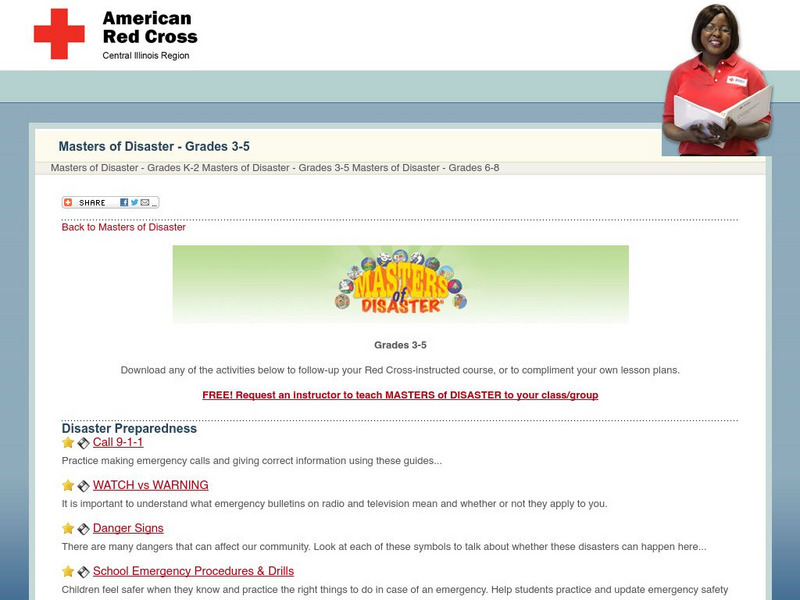Hi, what do you want to do?
The Field Museum
Field Museum: Exhibits: Nature Unleashed: Inside Natural Disasters
Discover the true powers of Mother Nature through this vivid collection of research which delves into the causes of natural disasters and the impacts on those affected.
University Corporation for Atmospheric Research
Ucar: Forecast a Hurricane
Learn how to forecast a hurricane. Choose a high/low combination and see where the hurricane will go.
PBS
Pbs Learning Media: Earth System: El Nino's Influence on Hurricane Formation
This video segment adapted from NASA's Goddard Space Flight Center explains how and where hurricanes develop. Learn how El Nino events alter the course of atmospheric circulation. Includes background reading material and discussion...
The Washington Post
The Gulf Coast in Katrina's Wake
This vivid look at New Orleans and the surrounding areas truly gets to the core of the destruction imposed by Hurricane Katrina. A graphic overview, panoramic photographs, and short videos are just a few of the amazing resources offered...
University Corporation for Atmospheric Research
Ucar: Tornadoes Teaching Box
In this teaching box are resources to help students learn why and where tornadoes happen and how these weather events impact people's lives.
University Corporation for Atmospheric Research
Ucar: El Nino Teaching Box
This Teaching Box combines readings and activities to build student understanding of the changes that happen during an El Nino event.
University Corporation for Atmospheric Research
Ucar: Flash Floods Teaching Box
This teaching box is filled with explorations and readings that help secondary students learn the science of flash flooding.
University Corporation for Atmospheric Research
Ucar: Torrents, Droughts, and Twisters Oh My!
Students review what scientists know and what they're working to understand about the relationship between extreme weather events and climate change.
Children's Museum
The Children's Museum of Indianapolis: Weather: Twirly Whirly Tornado
For this lesson, students will witness the creation of a funnel, observe how a funnel moves debris, and learn how a thunderstorm can create tornados.
Alabama Learning Exchange
Alex: Forecasting Severe Weather
This lesson increases student knowledge of severe weather and weather forecasting. It emphasizes the importance of student questioning to obtain information. After the introduction to severe weather is made, students will create their...
Extreme Science
Extreme Science: Tornadoes
Funnel clouds have been around for a long time. Check out the story of tornadoes and find out more about an outbreak of tornadoes in April of 1974.
Extreme Science
Extreme Science: Extreme Weather
Extreme Science takes a look at the "extreme weather" around the world. Look at cyclonic storms, blizzards, and other weather records.
University Corporation for Atmospheric Research
Ucar: National Center for Atmospheric Research: Severe Weather Storms [Pdf]
Teachers and/or students are given four scientific experiments related to severe weather. Included are making clouds, homemade lightening, tornado in a bottle, and dissecting hailstones. Dramatic photos of severe weather conditions are...
University of Illinois
University of Illinois Urbana Champaign: Severe Storms Modeling
This site features information on the severe storm computer modeling that meteorologists use to help them study severe storms.
Science Education Resource Center at Carleton College
Serc: Impact of Natural Disasters on the Earth
Through demonstrations and other research, students explore the impact of various natural disasters on the earth. The disasters include floods, tornadoes, hurricanes, volcanoes, and earthquakes.
Extreme Science
Extreme Science: Hurricanes
Whether you know it as hurricanes, typhoons, or cyclones, these dangerous storms are described in this article.
TED Talks
Ted: Ted Ed: The Most Lightning Struck Place on Earth
Lake Maracaibo is the stormiest place on the planet. Thunderstorms rage above this massive body of water for up to 200 days of the year, with each ear-splitting event lasting for several hours. Graeme Anderson lists the factors that...
TED Talks
Ted: Ted Ed: How Do Tornadoes Form?
Meteorologist James Spann sheds light on the lifespan of tornadoes as they go from supercell thunderstorms to terrible twisters before eventually dissolving back into thin air. [4:11]
Dan Satterfield
Dan's Wild Weather Page: Hurricanes
Use this site to find out about hurricanes and how to track them.
PBS
Pbs: Wgbh: Nova: Reconstructing a Storm
Scientists use a variety of tools to reconstruct storms in an effort to understand how they develop. These studies are conducted in an attempt to prepare for future storms. Peer close inside a megastorm, analyze and reconstruct it, and...
Other
Kidstorm: Hurricanes
Get the facts on hurricanes with this detailed information page. This page includes photos, charts and satellite images.
Other
American Red Cross: Masters of Disaster: Grades 3 5
This resource provides many science lessons with related activities for children in grades 3-5 regarding disaster preparedness. The resource covers tornadoes, fires, lightning, floods and general preparedness information.
NOAA
Noaa: Cpc: Hazards Assessment Brief
This Hazards Assessment from the Climate Prediction Center is intended to provide emergency managers, planners, forecasters and the public advance notice of potential hazards related to climate, weather and hydrological events. Check out...
NOAA
Noaa: Operational Significant Event Imagery
This site contains satellite images from around the world organized by significant events such as dust storms, floods, severe weather, etc. Not very user friendly, but the images are there for those willing to search.


















